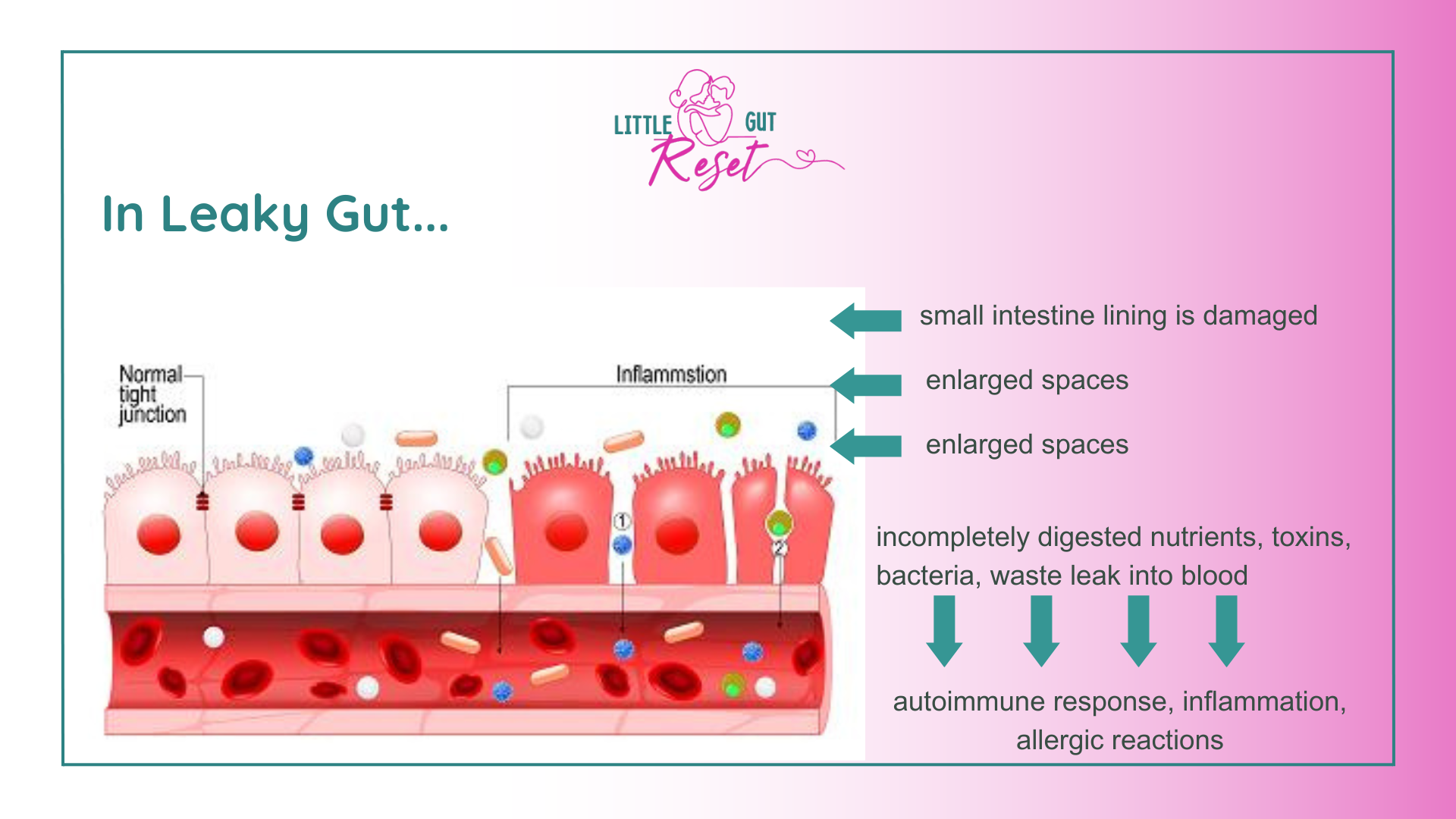
In my journey through understanding pediatric eczema, I've stumbled upon a profound revelation: the gut holds the key. Yes, what we feed our kids and how their bodies react to those foods can set off a chain reaction, leading to various inflammatory conditions, including eczema.
From my extensive research and personal experience with my little patients, I've come to firmly believe that food sensitivities, mediated by IgG antibodies, play a significant role not only in eczema but also in other childhood inflammatory conditions.
It's not just me who's noticed this phenomenon. The intricate relationship between food sensitivities and a condition called leaky gut has caught the attention of many healthcare professionals, including conventional medicine.
That's why I believe it's crucial for you to grasp this connection to effectively heal your child's eczema for good.In this article, we delve into the intricate relationship between pediatric eczema and gut health, exploring how dietary factors and gut integrity may influence the development and severity of this skin condition.
The Role of Gut Health
Our gut holds immense power, housing two-thirds of our immune system. When our gut is out of balance, it throws our immune system off-kilter as well.
So, even though it might seem like eczema is triggered by external factors like detergent or clothing, the root cause often lies within our hyperactive immune system.
Since the skin acts as the body's largest elimination organ, it's no wonder that it bears the brunt when toxins circulate in the bloodstream.
Eczema and skin rashes serve as visible indicators of the body's attempt to purge these toxins. But how do these toxins end up in your child’s blood stream to begin with?

Understanding Leaky Gut Syndrome
Leaky gut syndrome, also referred to as increased intestinal permeability, describes a condition where the lining of the intestines becomes more porous than usual. This increased permeability allows toxins, bacteria, and undigested food particles to seep into the bloodstream.
Consequently, the body mounts an immune response, leading to inflammation and potentially contributing to various health issues, including eczema.
Damage to the gut lining, comprising protective cells called enterocytes, is the underlying cause of leaky gut. Normally, these cells regulate the absorption of nutrients while preventing harmful substances from entering the bloodstream.
However, factors such as poor diet, medications, stress, and prenatal exposures can disrupt this delicate balance, resulting in the formation of abnormal gaps between these cells.
While the concept of leaky gut syndrome remains a topic of debate in the conventional medical community, there is growing recognition of its potential role in the development or worsening of eczema.
A recent article by a pediatric dermatologist, featured on a national eczema platform, acknowledged leaky gut as a potential contributor to eczema—a significant breakthrough in conventional medical thinking.
Evidence supporting the existence of leaky gut has been observed in children with eczema, as well as infants with cow's milk allergies. This underscores the importance of further research into the gut-skin connection and the potential therapeutic implications for managing eczema and related conditions.

Where do Food Sensitivities Fit into the Picture?
Further, leaky gut can lead to food sensitivities by allowing undigested food particles to pass into the bloodstream, triggering an immune response and promoting the development of hypersensitivity reactions to specific foods.Food sensitivities play a significant role in the complex interplay between gut health and eczema. When a child's immune system reacts adversely to certain foods, it can trigger inflammatory responses throughout the body, including the skin.
Although the exact mechanisms linking food sensitivities to eczema are not fully understood, emerging evidence suggests that they contribute to systemic inflammation and immune dysregulation, exacerbating skin conditions like eczema.
For many children with eczema, identifying and eliminating trigger foods from their diet can lead to significant improvements in symptoms. Common culprits include dairy, gluten, eggs, and nuts, although individual sensitivities may vary.

While food sensitivity testing can provide some insights, it's important to recognize that these tests are not always accurate. As a result, the most reliable approach often involves an elimination diet, where suspected trigger foods are temporarily removed from the diet, followed by a gradual reintroduction to assess their impact on symptoms.
I understand that you might feel resistance to undergoing an elimination diet with your child.
But what I often find is that once my families ditch those troublesome junk foods, they realize they don't even miss them down the road. Plus, it's pretty cool to know that our taste buds get a fresh start every 30 days, so those cravings for the stuff we cut out tend to fade away on their own—it's all about staying patient and giving it time.
Conclusion
By addressing food sensitivities and supporting gut health through dietary modifications, probiotics, and other interventions, parents and healthcare professionals can take proactive steps towards managing eczema and promoting overall well-being in children.
If this sounds A LOT to carry on your own shoulders, I want you to know you don’t have to go through this journey alone—seeking help is key.
Over the past 7 years, I've discovered that for most kids, a happy gut leads to happy skin. If you're eager to learn how to heal your child's eczema, I invite you to join my FREE LIVE online eczema masterclass, "4 Steps to Healing Your Child's Eczema Naturally".
This masterclass will show you the fastest way to healing your child’s eczema without wasting any more time, energy and money on creams and medications that don’t work.
Sign up to the Masterclass
Secure your place in our free masterclass on helping your child find lasting relief from eczema.
Don't miss out on this valuable opportunity to gain insight into kissing your child's eczema goodbye once and for all!

0 comments